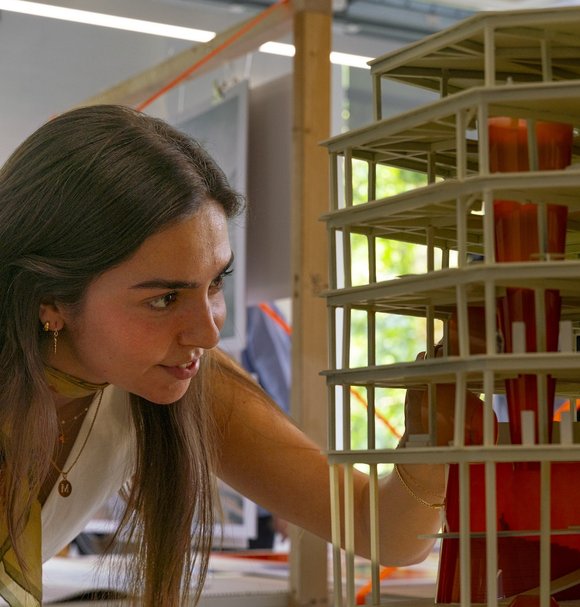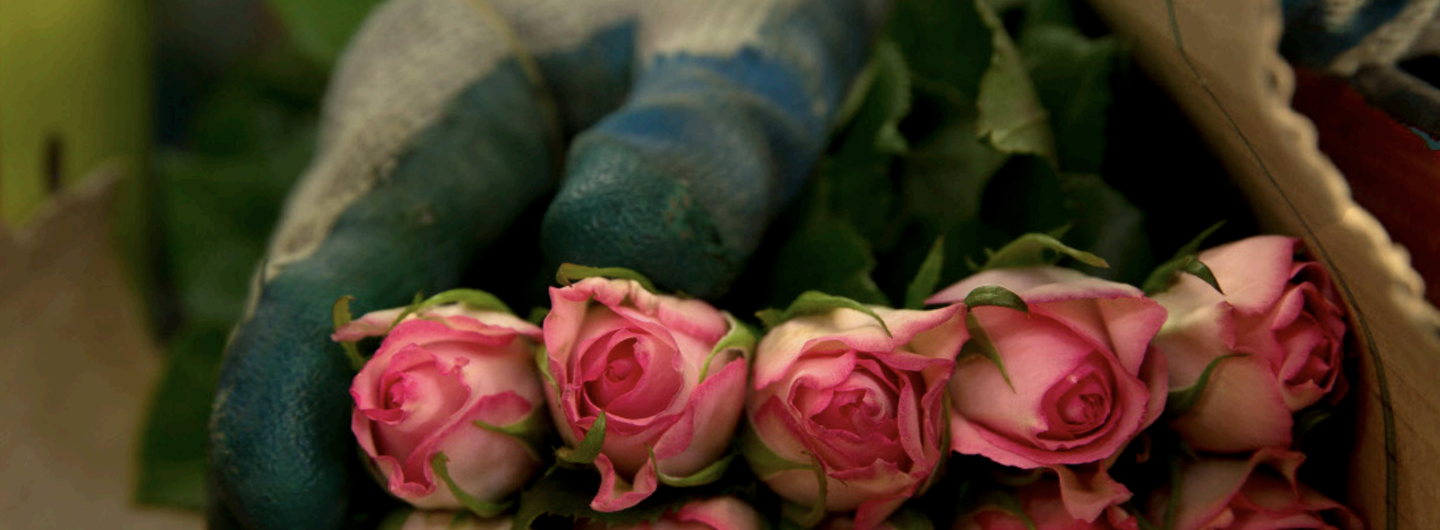
Key details
Date
- 29 July 2025
Author
- RCA
Read time
- 4 minutes
Each year a series of prizes is awarded to graduating students for exceptional work in the School of Architecture
Key details
Date
- 29 July 2025
Author
- RCA
Read time
- 4 minutes
Architecture MA
School of Architecture Dean's Prize
Georgie Grantham
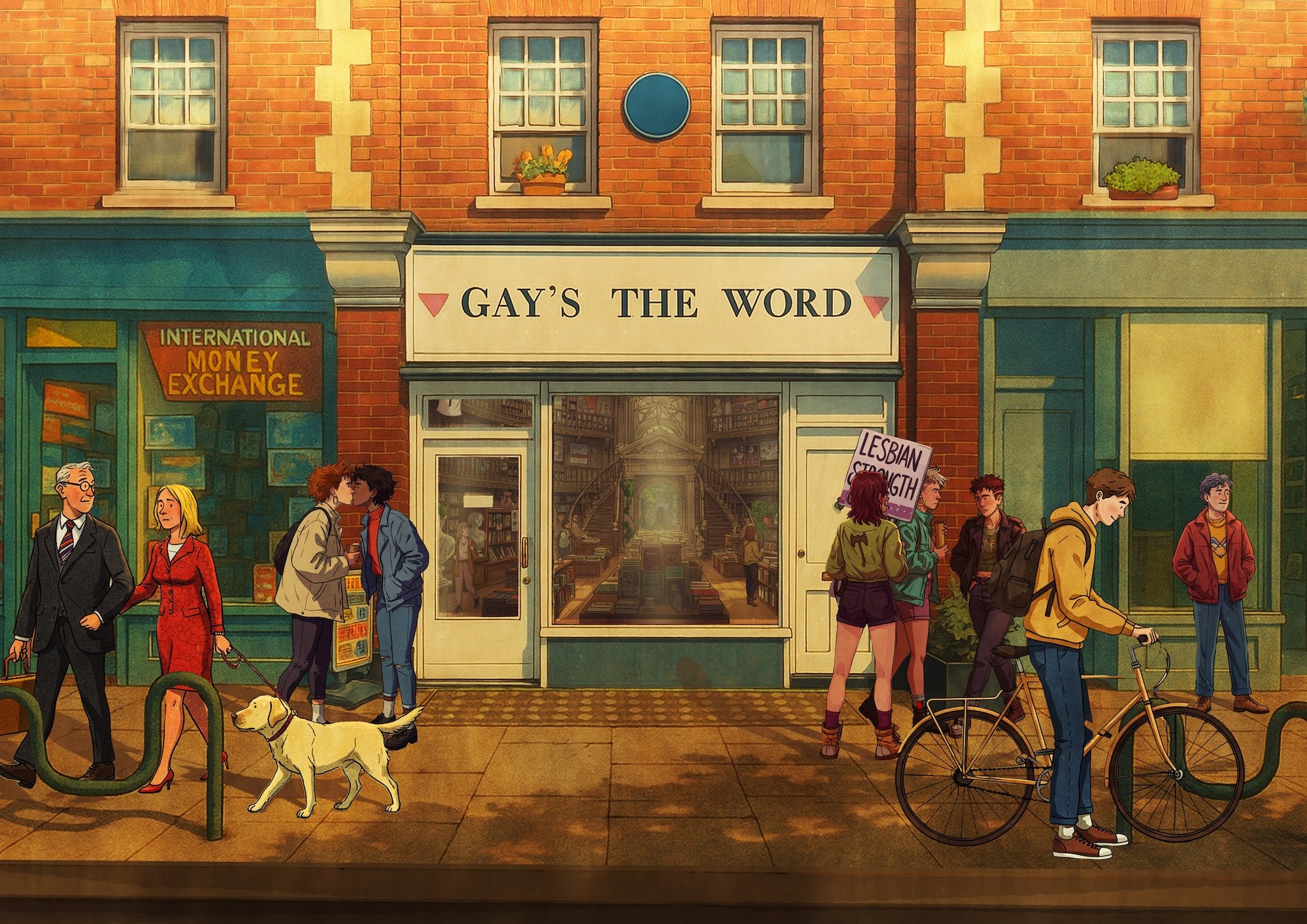
Kaleidotemporality, an offshoot of queer temporality, offers a fragmented, multi-faceted approach to time, challenging fixed notions of queer space. Queer spaces, resisting architectural definitions, defy conventional classification due to their fluidity. Yet, heteronormative temporal frameworks often dictate how any space is valued and preserved. This project advocates shifting from spatial permanence to temporal design, proposing that safeguarding queer space requires an alternative temporal framework. By embracing fragmentation and speculative design, kaleidotemporality destabilises ingrained ideas of inevitability, reclaims marginalised narratives (especially lesbian histories), and reframes preservation as an active, evolving process encompassing the temporal conditions that allow queer space to emerge and thrive.
MA Architecture Head of Programme Prize
Francesca Foster Moseley
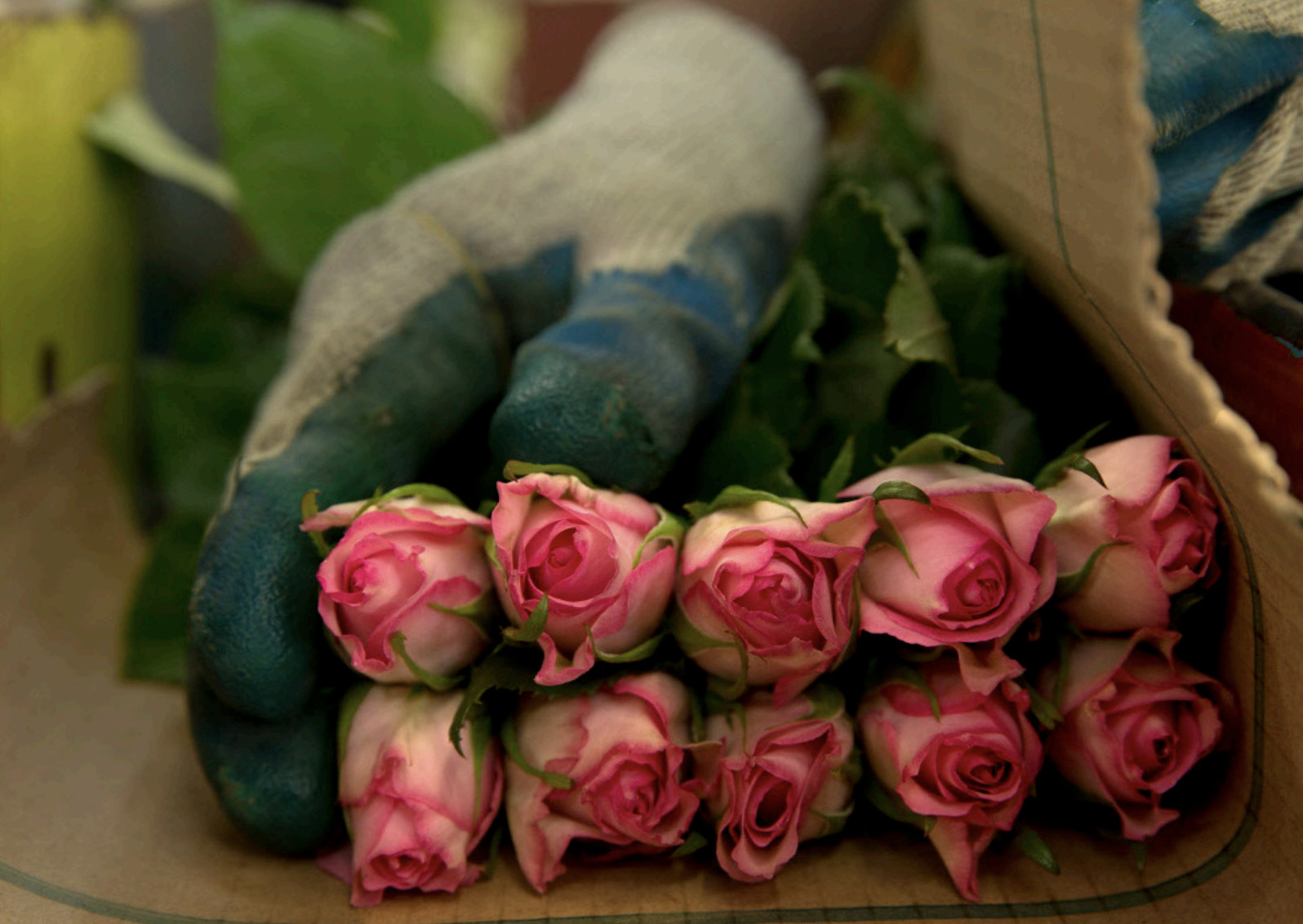
Floricultural investigates floriculture, the agricultural production of flowers for human enjoyment, as a witness to the continuum of colonial violence in Kenya. This work envisions a research foundation that illuminates the covert systems of racial capital at play within the floriculture supply chain to inform the strategic placement of subversive devices amongst existing infrastructures. This work seeks a system of covert repair, taken rather than given.
School of Architecture Image / Drawing Prize
Rebecca Miller
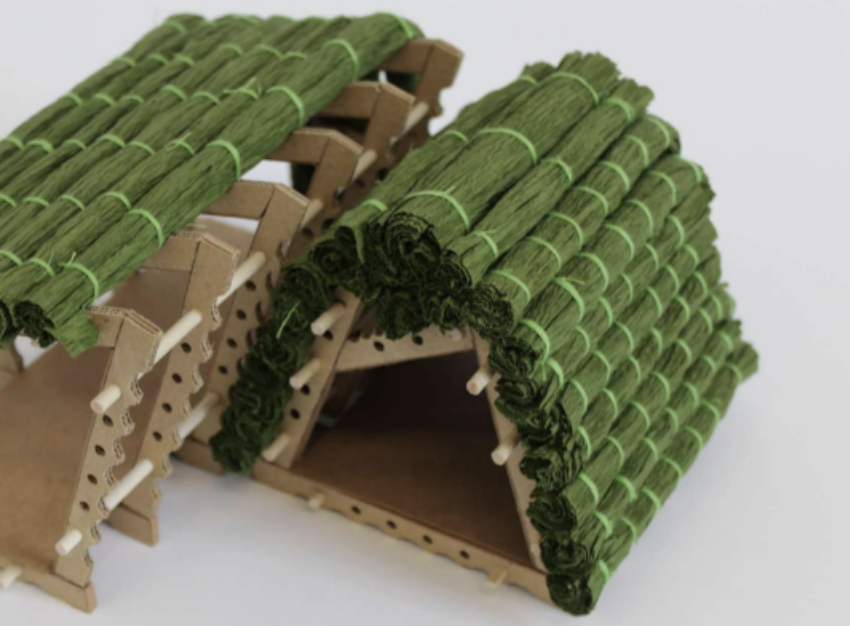
(Un)litigating lettuce examines how the prickly lettuce can be used for charting new courses of lettuce farming practices in their associated infrastructure in an East Anglian Archipelago.
City Design MA
MA City Design Head of Programme Prize
Hayoung Yang

Repair and return develops a multifaceted approach to amputation in Gaza that incorporates prosthetic limb design, memorial infrastructure and community engagement programmes.
MA City Design Head of Programme Prize
Shuting (Susie) Zang
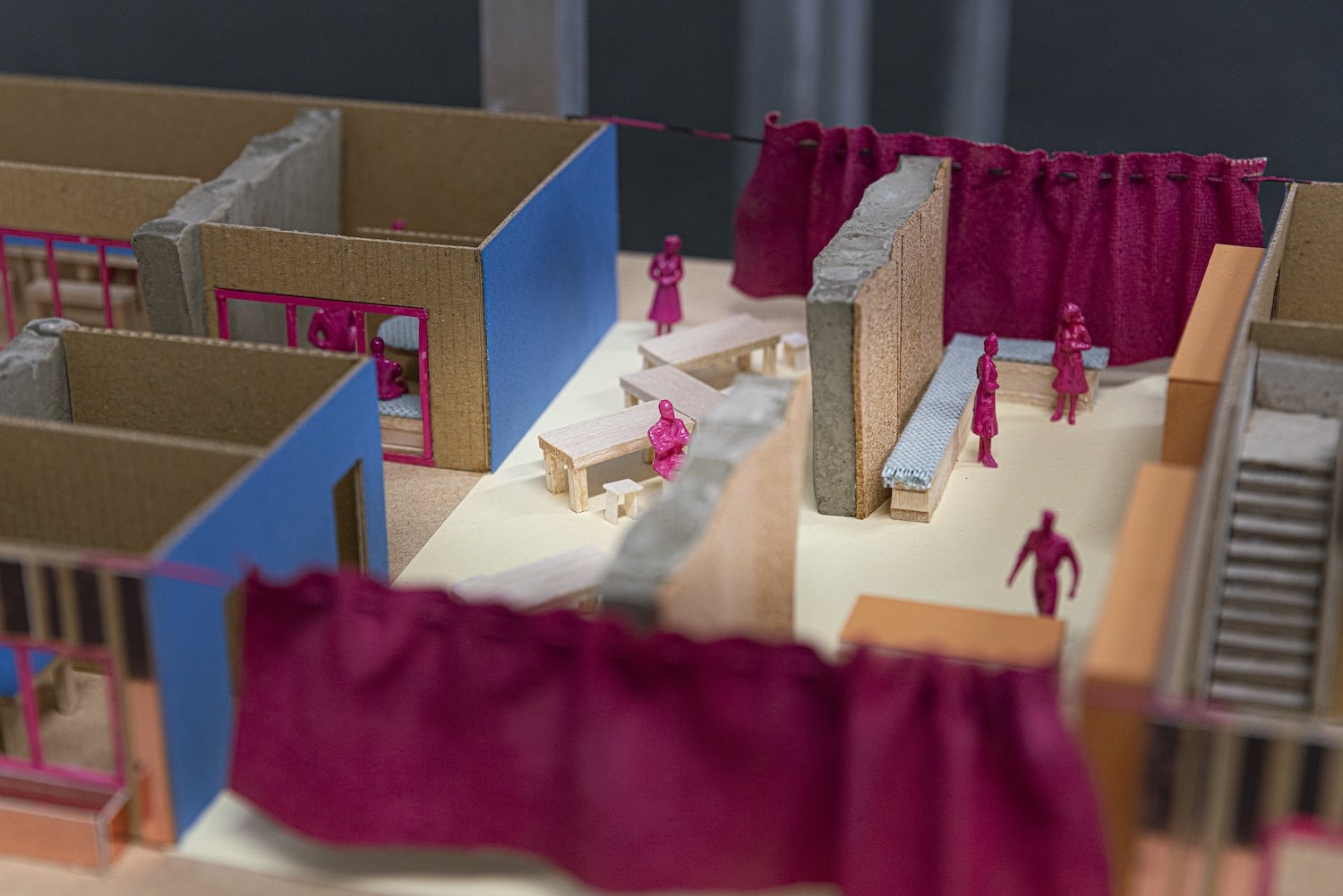
Shuting (Susie) Zang’s project explores how community-led spatial interventions can reclaim underused spaces in Carpenters Estate. It addresses overcrowding, damp, and social isolation through multi-scalar low-impact strategies such as a community centre, shared laundries, tool sheds, and other flexible shared spaces that support care, autonomy, and resistance to displacement.
Environmental Architecture MA
MA Environmental Architecture Head of Programme Prize
Will Tooze
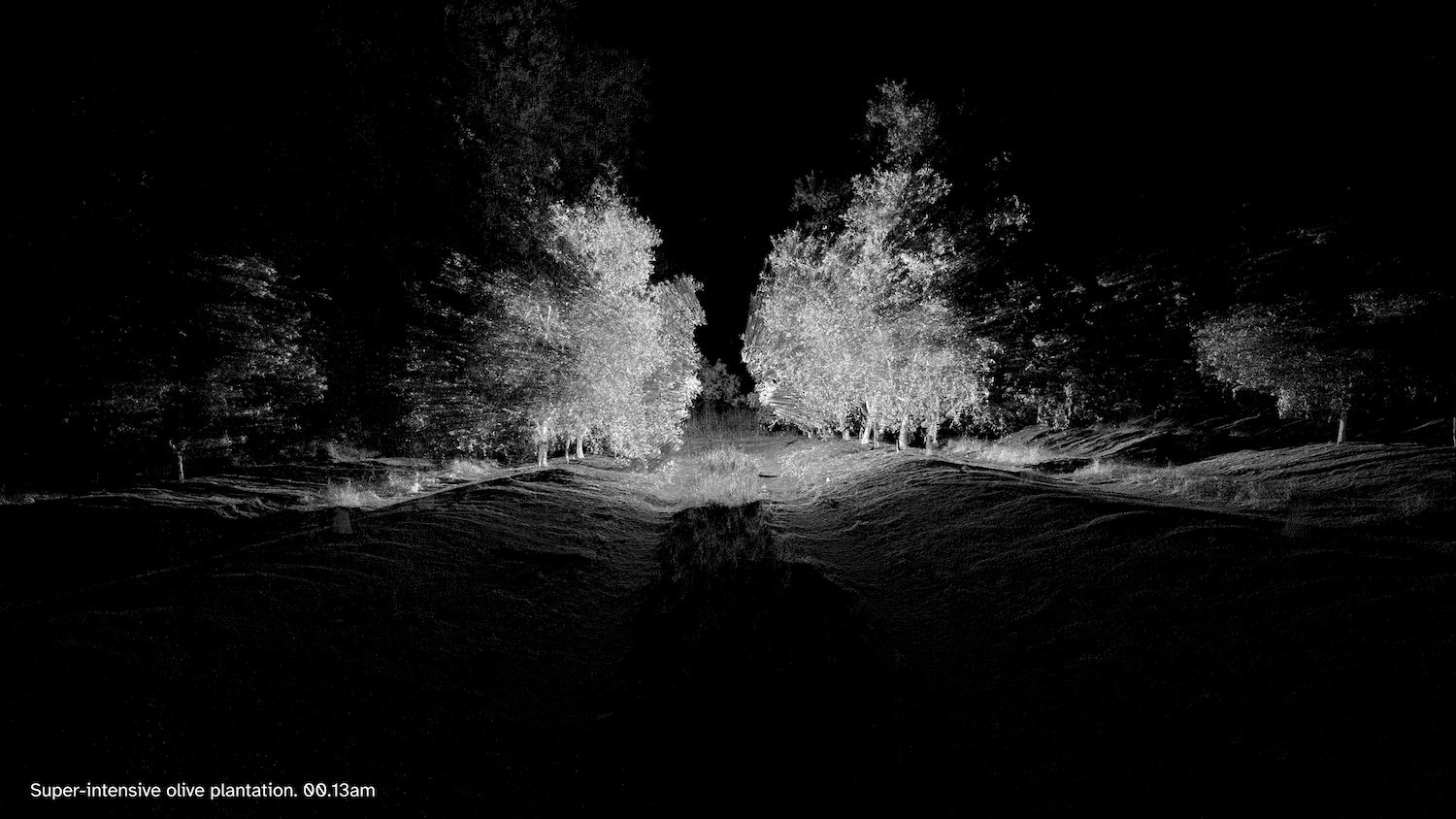
The desertification of the Mediterranean also implies its nocturnalisation — climatic shifts precipitate changes in time. In Baixo Alentejo, a southern region of Portugal, nocturnal modes of co-existence are already made vulnerable through the implementation of extractive agriculture. Listening with its inhabitants and embedded within critical sites of change, we can begin to make sense of how the border between day and night is registered, occupied, mobilised, and ultimately becomes a site of environmental struggle.
Interior Design MA
MA Interior Design Head of Programme Prize
Natalie Aldridge
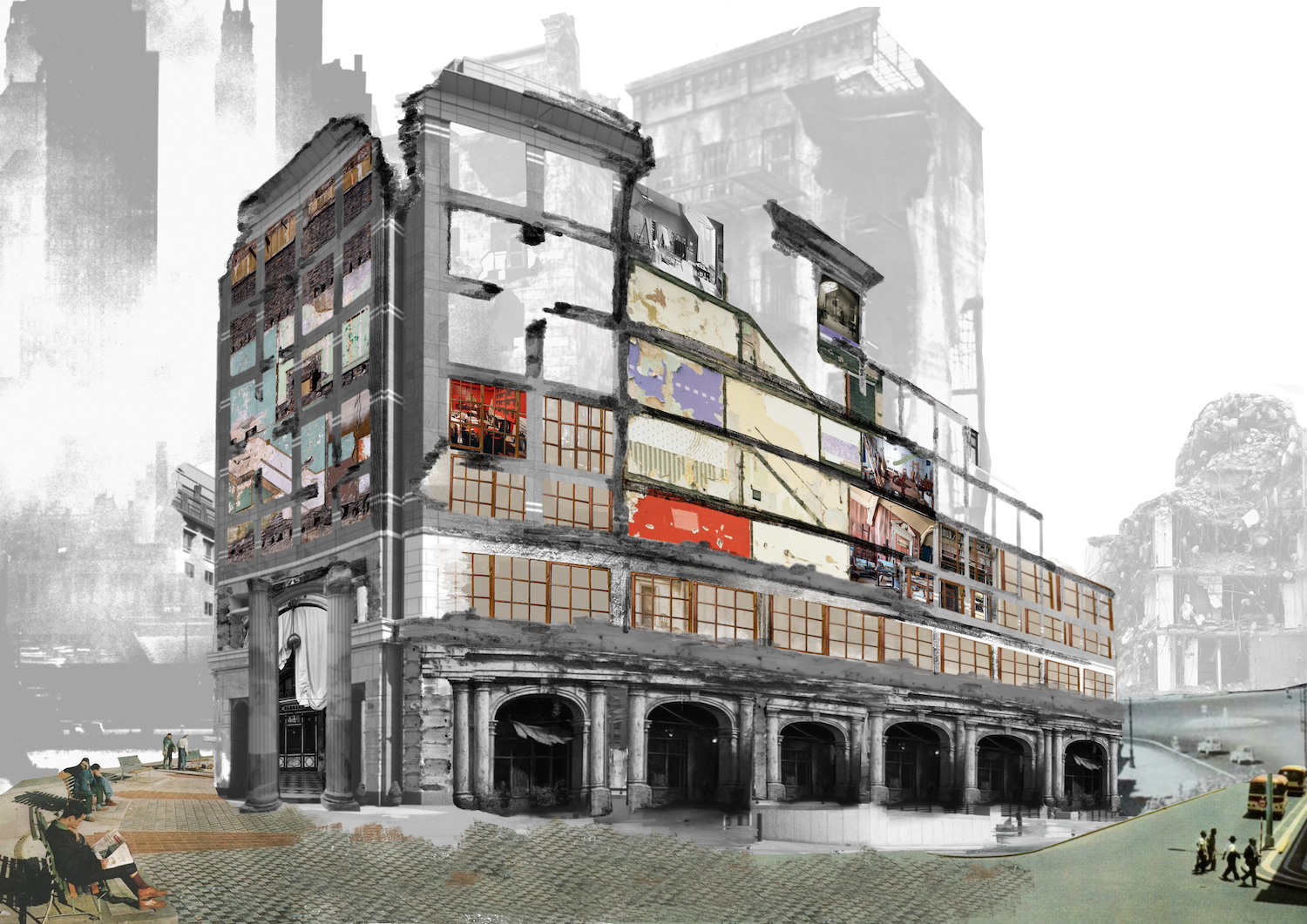
The Artisan Underground reimagines 15 West Ferry Circus in Canary Wharf as a post‑industrial sanctuary in ruin, set in the year 2062. A fictional collective of bohemian artisans inhabits the decaying corporate tower, transforming its post‑modern architecture into a network of hidden ateliers that merge historic craft with speculative reuse. Central to the project’s manifesto is an advocacy for slowness, tactility, and cultural memory, asserting beauty as vital to life and a form of resistance in an era defined by speed and obsolescence. The work culminates in a hyper‑detailed model of fine artist Leontine Fluermont’s studio, evoking intimacy and ritual through layered ephemera, worn textures, and cinematic light.
Media Studies Prize
Oleksandra Umanska
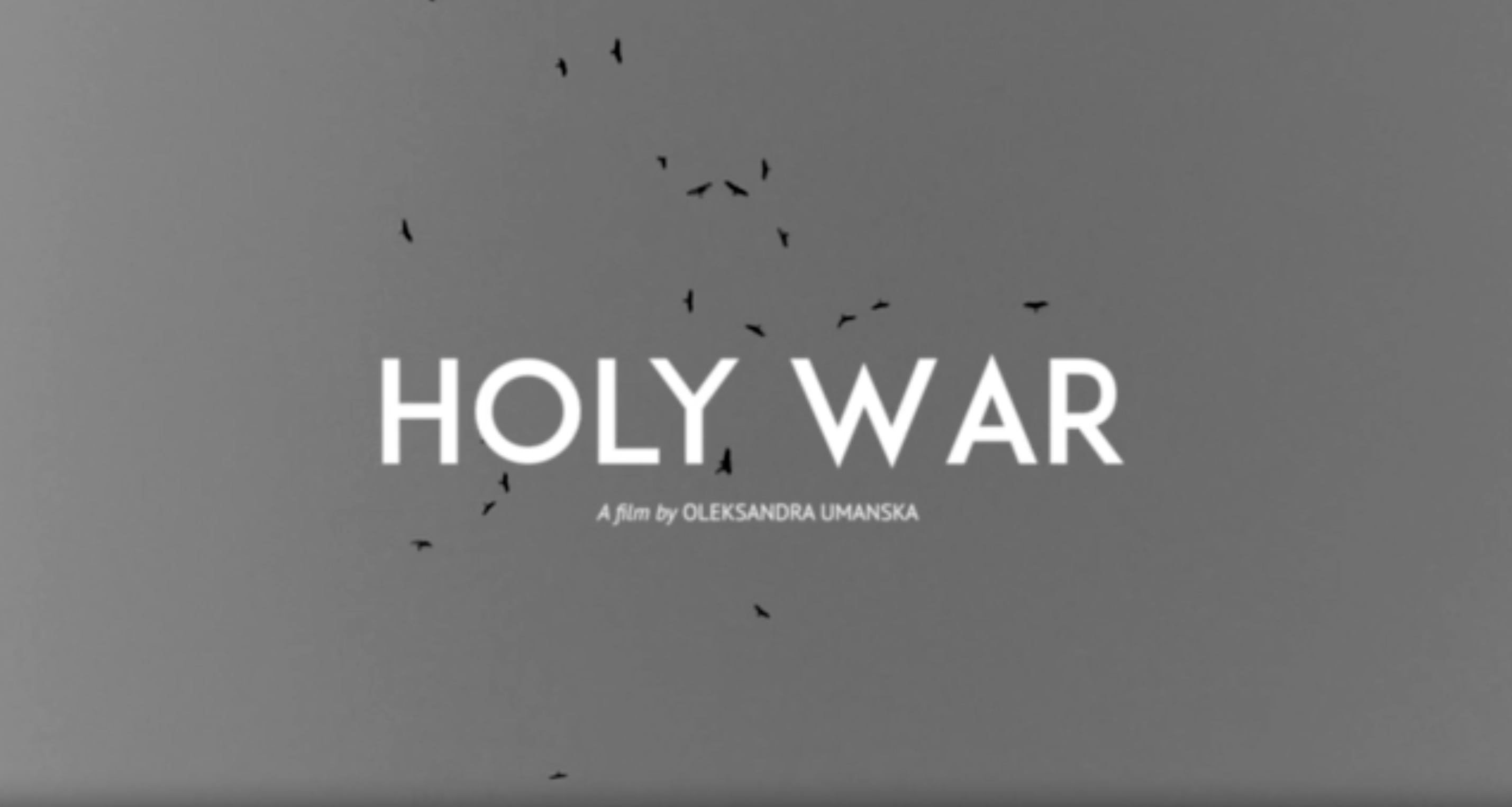
Holy War explores how religious beliefs have been leveraged to justify violence and fuel conflict. For many, places of worship serve as therapeutic refuge, offering comfort through a connection with God. Losing access to such a place can trigger a challenging mental and emotional journey, especially for those grieving the loss of loved ones. The film's visuals draw inspiration from Ukrainian folk tales, where both places and people are symbolised in transformative and abstract forms.
School of Architecture Climate / Spatial Justice Prize
Khrystyna Oryshchak
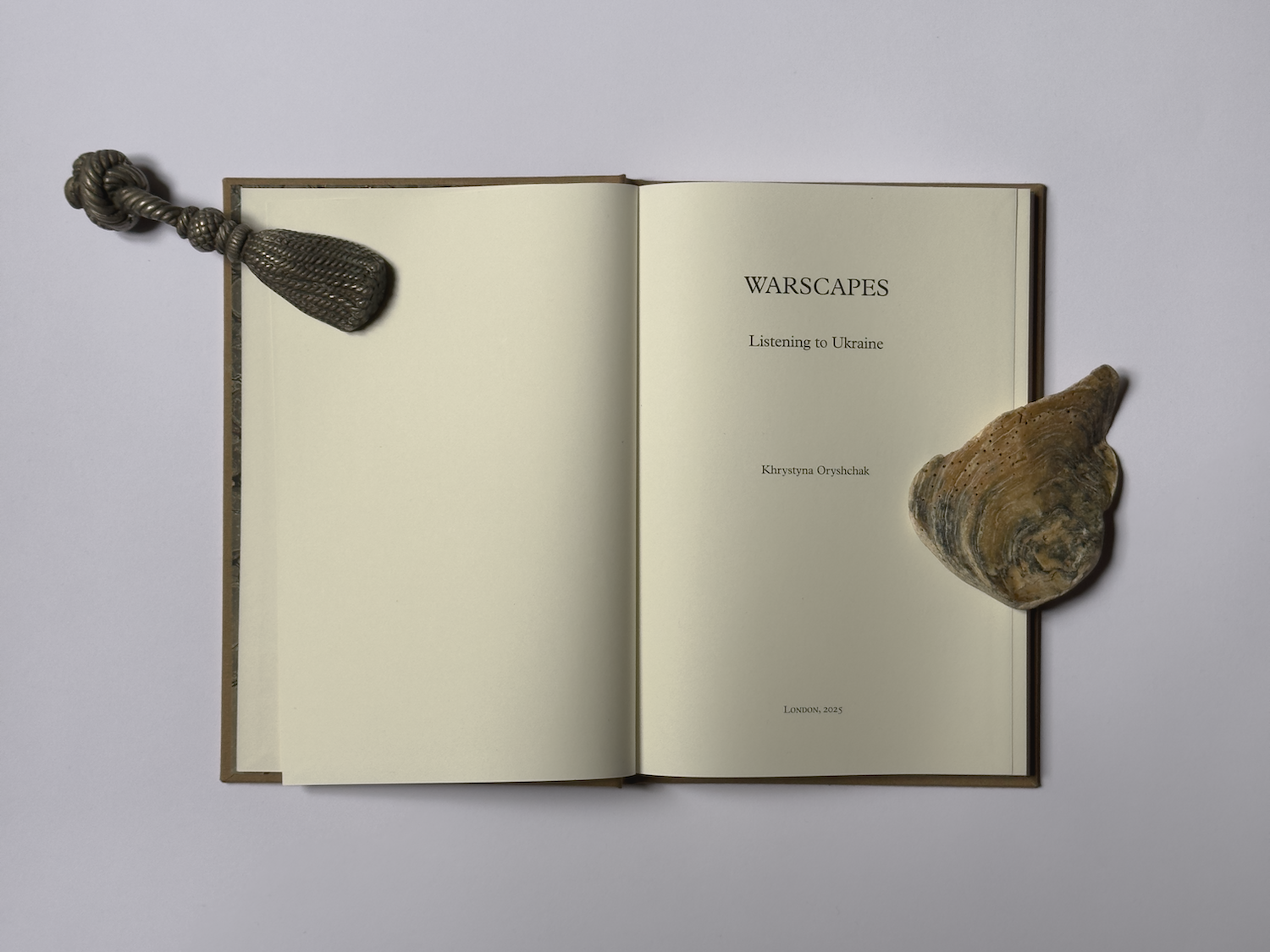
Warscapes: Listening to Ukraine is a book which documents war through images created with sound vibrations and charcoal. The sounds were recorded since the beginning of Russia’s full-scale invasion of Ukraine by civilians living under constant aerial attacks in Ukrainian cities and by those defending the country from invaders. The images are accompanied by testimonies from those who recorded the sounds.
Student Prize
Inside / Out group project: Sehar Vedi, Senia Gomes, Laura Avedissian, Ludovica Frau, Vaishali Odedra, and Aastha Bhute
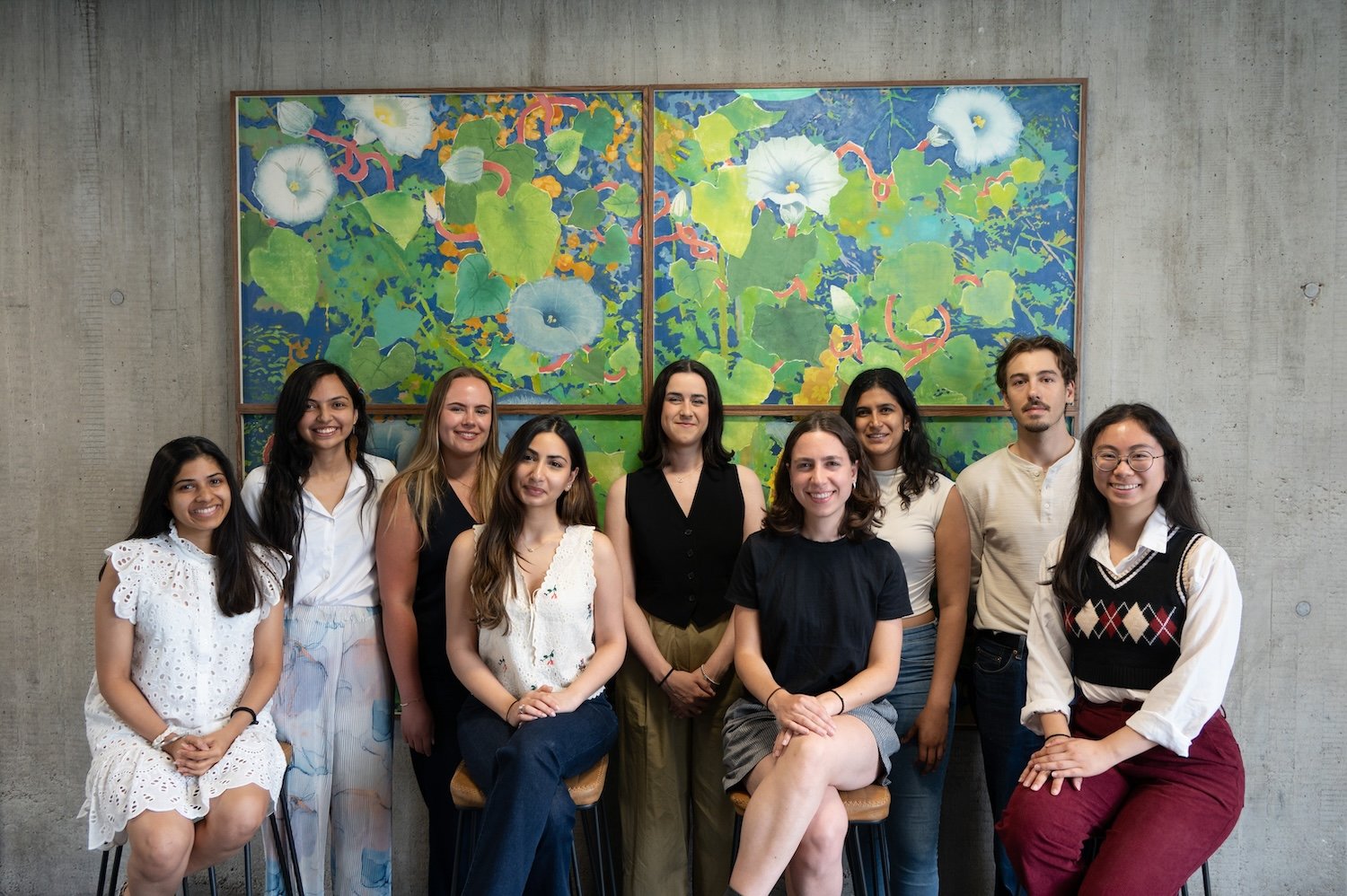
Inside/Out is the RCA’s only student-led lecture series which brings together leading voices from the field of design who continue to challenge the boundaries of the discipline, pushing innovation, inclusivity, and critical thinking. The public series is curated and organised by MA Interior Design students, aiming to dissect and critically discuss the technologies that are reshaping the field today. This year’s talks featured a diverse range of perspectives – from Nick Newman (Studio Bark and U-Build), who explored protest architecture; and Ibrahim Ibrahim (Portland Design), who shared insights on future-ready human-centred design; to Christian Tschersich (LAVA Architects), who presented on the principles of circularity in architecture. A special edition of the series was also held at the London Design Biennale, where Toshiki Hirano (Kuma Lab) offered a compelling ode to Japanese washi paper – an interplay of lightness, translucency, and texture that seamlessly blends centuries-old craft with cutting edge digital techniques.
Design Practice MArch
MArch Design Practice Head of Programme Prize / School of Architecture Model / Animation / Film Prize
Heongji Yang
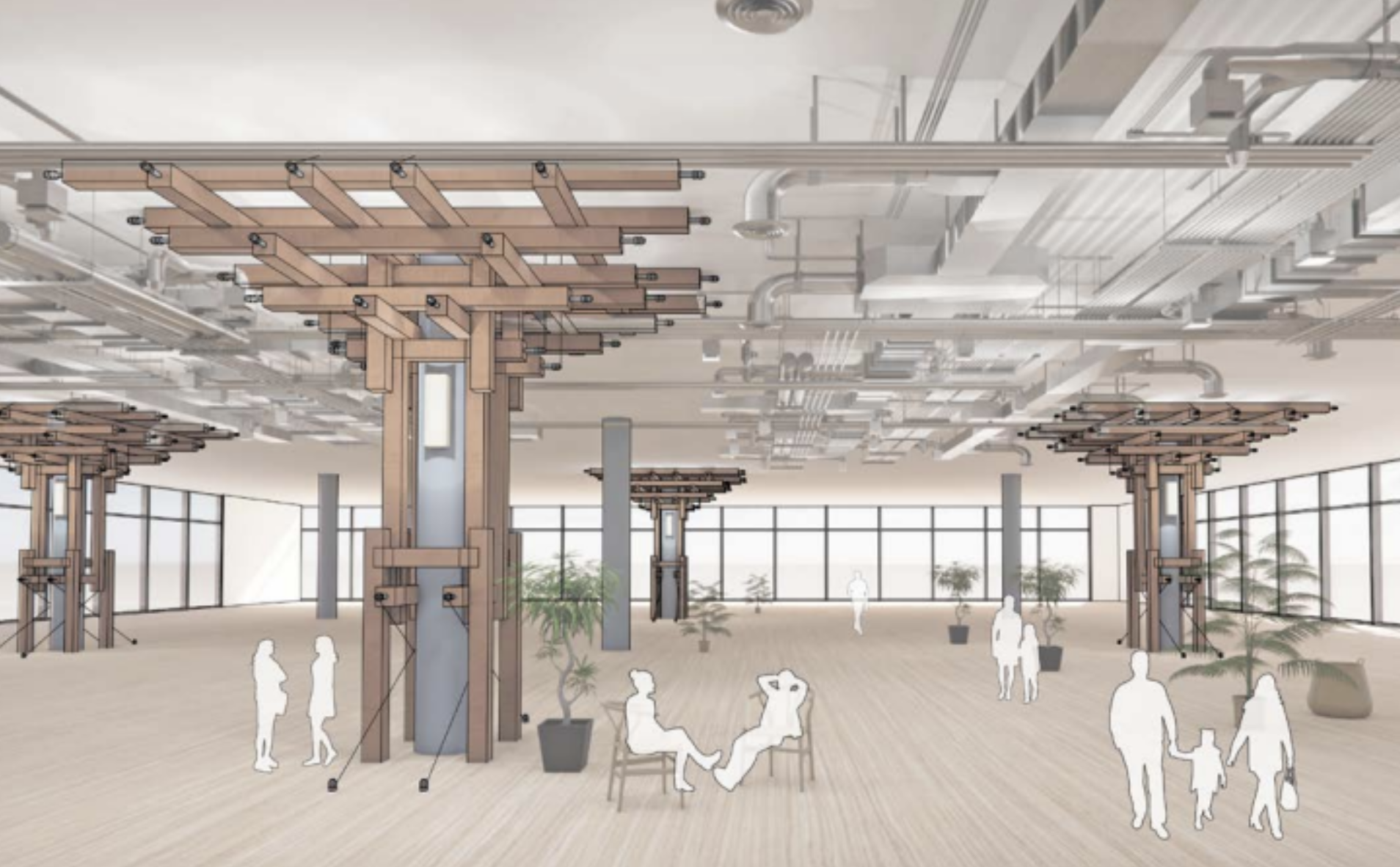
Yang's research focuses on environmental governance in Vietnam, examining how reforestation and carbon offsetting projects reflect colonial legacies and Western systems of value. She explores how landscapes are abstracted into tradable units, how care is instrumentalised, and how knowledge is erased through extractive environmental agendas. Her work engages with fragmented memories, suppressed voices, and alternative relations to land, revealing how ecological narratives are shaped by histories of dispossession and the politics of visibility.
PhD
PhD Writing Prize
Blanca Valdés
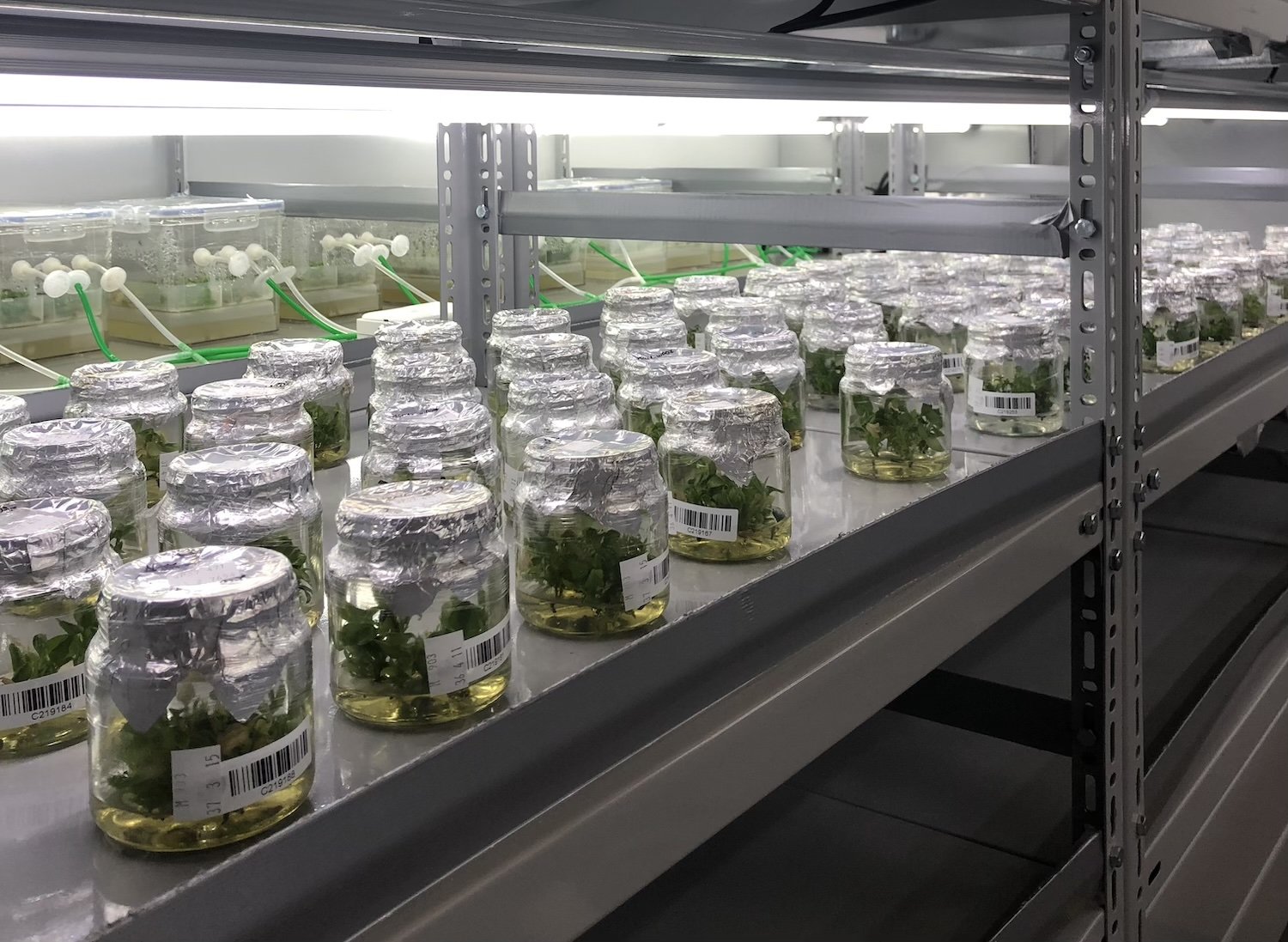
Blanca Valdés’ essay Trees and Worms: Eucalyptus and Global Trade Networks between 1730 and 1880 explores the historical uses of the eucalyptus tree, as well as the environmental and spatial impact of its industrial production, which has reached an especially significant scale in modern-day Chile. Valdés’ research project critically examines the transformation of landscapes and communities through the expansion of eucalyptus monocultures by using visual documentation, archives and drawings of early explorers, as well as on site photography and satellite imagery.
